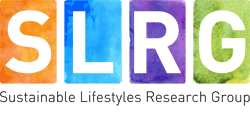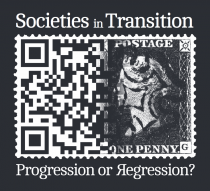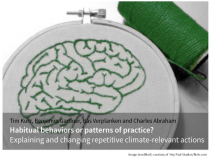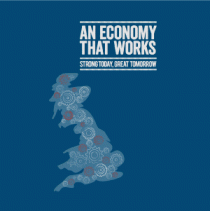- About
- Team
- Projects
- Children and the Environment
- ELiCiT (Exploring lifestyle changes in transition)
- Foundations for Sustainable Living
- HABITs
- Mapping Rebound Effects
- PASSAGE (Prosperity and Sustainability in the Green Economy)
- Policy Dialogue
- Price Responsiveness of Demand in Energy
- Resilience and Sustainable Lifestyles
- Sustainability Transitions in Food Systems
- Sustainable Living in Remote Rural Scotland
- Publications
- News
- Events
HABiT (Habits, attitudes, and behaviours in transition)
Project Team: Bas Verplanken and Debbie Roy (University of Bath)


Audio: Bas Verplanken, Project Summary for SLRG Dissemination Event | 3 June 2014
In this field experiment 800 households were recruited to investigate the extent to which some of people’s old habits are disrupted when they go through a life course transition (moving to a new home), and they have to re-orient and adapt themselves to this new situation. A sustainable behaviour change intervention to promote sustainable behaviours which had been developed by the Peterborough Environment City Trust was delivered by the Trust to half of those who had moved and half of those who had not moved (intervention condition). Participants who did not receive an intervention served as a comparison group (control condition). The intervention consisted of a household visit and interview, free sustainable items, tailored advice and general information.
We investigated the degree to which this life course transition provided a window of opportunity for more effective sustainable behaviour change interventions (the Habit Discontinuity Hypothesis; HDH). We found that a discontinuity provides such an opportunity: an intervention to promote more sustainable behaviours resulted in a small but statistically significant increase in self-reported sustainable behaviour when delivered to a group of participants who had very recently moved house, compared with a group who had not recently moved. This suggests that interventions may provide more value for money if they capitalise on and are delivered in the context of life course changes. This ‘window of opportunity’, in the present case, was found to last approximately three months after moving house.
The effect size of moving house per se was small suggesting that there should be no blanket roll-outs: instead, we suggest selecting locations where there are a larger group of individuals going through a life course change (newly built residential areas are good examples); work with professional organisations that have developed rich local knowledge and are able to deliver interventions professionally and efficiently (e.g., PECT); find the ‘concerned consumers’ who could be the most responsive to messages encouraging a more sustainable lifestyle; tailor communication and interventions to the beliefs, motivations and needs of the target population; attempt small behaviour changes as they can be achieved with relative ease, increasing self-efficacy; thus engendering a belief that further lifestyle changes are possible.

Contact
If you have further questions please contact Bas Verplanken or Debbie Roy
+++
The project is being delivered in collaboration with Peterborough Environment City Trust.













